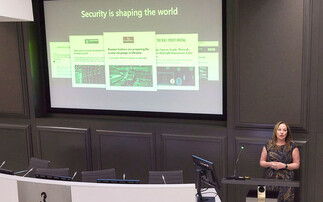Survey from Unisys and the Ponemon Institute indicates patchy preparedness of cyber attack
US critical infrastructure is largely unprepared for cyber attack with just 17 per cent of utilities claiming that their IT security programmes are deployed. That is the result of research from ...
To continue reading this article...
Join Computing
- Unlimited access to real-time news, analysis and opinion from the technology industry
- Receive important and breaking news in our daily newsletter
- Be the first to hear about our events and awards programmes
- Join live member only interviews with IT leaders at the ‘IT Lounge’; your chance to ask your burning tech questions and have them answered
- Access to the Computing Delta hub providing market intelligence and research
- Receive our members-only newsletter with exclusive opinion pieces from senior IT Leaders





















